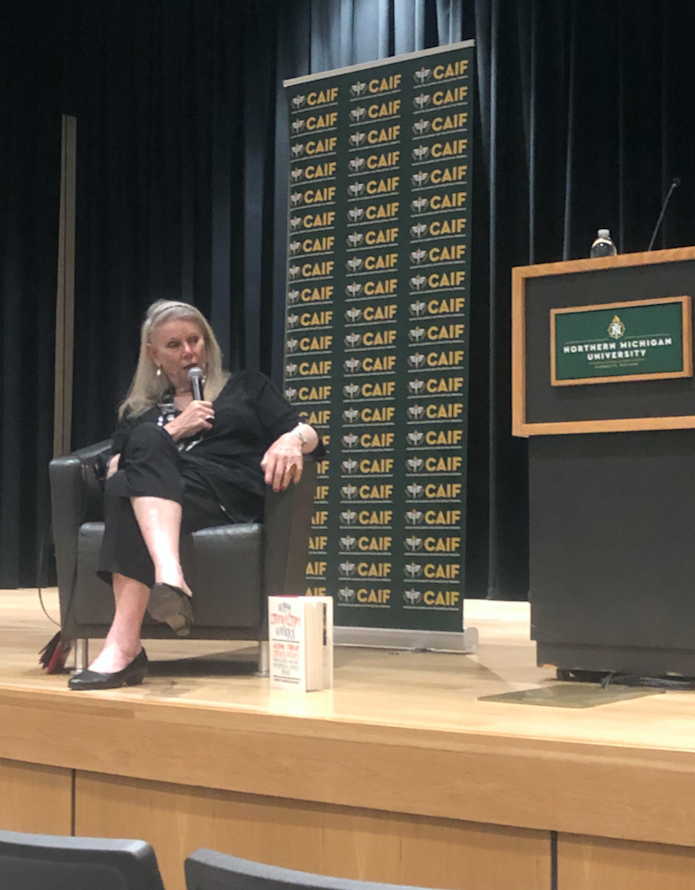Is it really better to be rich? Author, economics professor and transgender advocate Diedre McCloskey spoke upon her newest book, “Why Liberalism Works” and why it is indeed good to be among the wealthy.
The Center for Academic and Intellectual Freedom (CAIF) opened the presentation on Oct. 24 in Jamrich Hall, room 1100 to a packed auditorium of diverse Yoopers ready to hear the rhetoric and ideas of the Harvard graduate. There was a semblance of skepticism among the crowd, as well as a question of whether McCloskey’s topic of discussion would be relatable and well-received for her audience here. However, when understood, the goals of her talk were applicable to all.
“We’re both independent, autonomous, hockey-playing people but we are also cooperative, loving people of solidarity,” McCloskey said.
McCloskey identified the radical differences between global identification and association with the word “liberalism.” Historically, liberal meant a lot of different things, and each socioeconomic class, race and gender fit into a separate oppressed category that liberalism sought to free.
“[Liberalism] means a society of free people…it’s the idea that the best society is one in which everyone is free,” McCloskey said.
Independence should be placed first as an individual freedom, and that the true meaning of liberalism has been replaced with governing bodies who act as parental figures, McCloskey said, explaining, the government is something that is there to support people by essentially running their lives for them.
“I am from the government and I’m going to take care of you under the name of liberalism, or sometimes under the name of conservatism, as in I’m from the country club and I’m going to help you,” McCloskey said, explaining the function of government. “In any case, I am going to help you by running you.”
Instead of giving out secrets on how to become wealthy, McCloskey talked about how understanding the government plays a role in one’s wealth is important. Liberalism in its purest form leaves people to be their own governors over their lives, choices and future, she added.
“On the whole, large modern governments are not agencies for helping the poor, or when they help the poor they are bossy about it,” McCloskey said. “I am in favor of helping poor people, but I am not in favor of intervening in their consumption. If they want to spend [money] on alcohol and stuff that’s okay with me, that’s none of my business.”
Following McCloskey’s talk, the floor was then opened to questions from the audience. NMU Philosophy Professor David Cooper inquired about McCloskey’s stance on not wanting to fund public schools. McCloskey advocated for a voucher system for private schools, which was met with mixed emotions from her audience.
“Public schools give people in the margins a chance. You’re not free as a child. And so many people get left out when you don’t have access to public education,” Cooper said.
Students such as freshman psychology major Emma Rogers were also interested in understanding their role in their own future.
“I am a part of a generation that just turned 18, what would you like to see us do?” Rogers asked.
McCloskey responded by saying people should not vote for socialists, but also to not re-elect President Donald Trump. Meanwhile, people should do their research on candidates that are running so that each voter is as informed as they can be, she added.






























